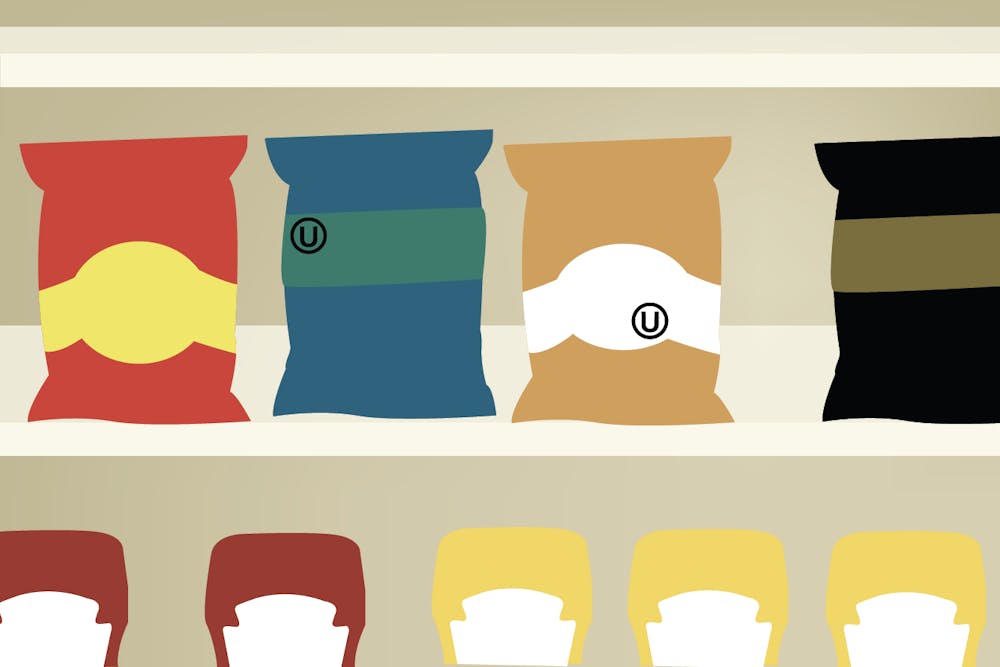I was on an innocent sushi date with my grandmother. She was taking me out to my favorite restaurant for lunch to celebrate Hanukkah. I barely need to scan the menu before my eyes dart to the crispy rice appetizer—my favorite. The dish was crispy fried rice, topped with spicy tuna, salmon, yellowtail, and a scallop. I politely asked the server to substitute the scallop for another piece of yellowtail.
When the dish arrived, my grandmother popped the yellowtail sushi in our mouths. “Wow! This is delicious!” she declared. I tried a bite, but something seemed off to me. This wasn’t the dish I remembered. My eyes widened as I realized what had happened. We received two scallops instead of yellowtail, and for the first time, I had just eaten treyf.
While she laughed it off, my mood immediately turned sour, and our Hanukkah celebration was ruined. It was a nibble, barely even a bite, that I spit out into my napkin. But I felt sick to my stomach, and I could not stop ruminating about it for a week.
My identity as an observant Jew defines me, and I’m proud of all the significance, guilt, humor, anxiety, history, and spirituality that comes with it. I find meaning in most of my practice: the break from screens on Shabbat, the family time on holidays, the meditation during services, the joy of volunteering, the thoughtful study of text.
But keeping Kosher—observing Jewish dietary laws—is a daily part of my observance where I often struggle to find meaning.
I find that I keep harping on the negatives—what I can’t do and what I’m doing wrong: no pork, no cheeseburgers, no shellfish, no mixing meat and dairy (which means two sets of dishes so that the meat and dairy don’t contaminate each other). I constantly ask myself—”Are my groceries certified Kosher? I really shouldn’t be eating at this restaurant, I really shouldn’t be drinking this wine, but it makes me happy...so should I?”
I was raised in a house where being observant is important. My parents set the tone that keeping Jewish law is meaningful, but that lightning won’t strike if you mess up or find a loophole (or two, or three, or four). Jewish law is more of a guiding principle, a code of ethics, a way of life. And if you eat a scallop by accident, big fucking whoop. I think that I feel a conflict with my dietary restrictions because while my family and friends set the tone of being serious—but maybe not vigilant—about keeping Kosher, I was also hearing voices that were stressing me out and making me feel like I haven’t been doing enough.
In sixth grade, my teacher at the Jewish day school I went to showed us a video of bugs crawling through strawberries to warn us what would happen if we ate where food wasn’t watched and washed without proper supervision. We learned that lard was everywhere—lurking in foods you wouldn’t expect and ready to ruin your relationship with God. As an anxiety–prone child, this fear–mongering didn’t help.
There are many other parts to my religion that involve a lot of rules and stringencies, but most of the time, I’m able to focus on the positives rather than the hindrances. Shabbat isn’t 25 hours where I can’t work or travel, but it is 25 hours of me sitting with my friends on the couch, drinking wine, and chatting without distraction. It’s going to parties without my phone, living in the moment. Fasting on Yom Kippur isn’t a caffeine withdrawal headache, but a chance to self–reflect and sit with my own thoughts.
I wonder if I can think this way about keeping Kosher. Maybe it’s not about what I can’t eat and how I keep messing up. Maybe keeping Kosher is about intentional eating, being thoughtful about what I eat instead of mindlessly munching. It’s a stop mechanism, a way to think mindfully about what I eat.
Or maybe, keeping Kosher is a celebration of Jewish foods. An invitation to delight in bagels and lox, babka, challah, cholent, and kugel. A window into different Jewish cultures at a dinner table when my Mizrachi or Sefardi friends cook. It’s a connection to the people who came before me who made recipes within the framework of their observance.
I’ve made peace with knowing that I’m never going to get it perfect. I’ll keep accidentally using the wrong set of dishes. I’ll probably eat something I shouldn’t again. But I’m going to try to celebrate whenever I get it right: when I cook a Shabbat dinner with my apartment, when I try a new family recipe, and when I stop and reflect about why I eat the way I do.

